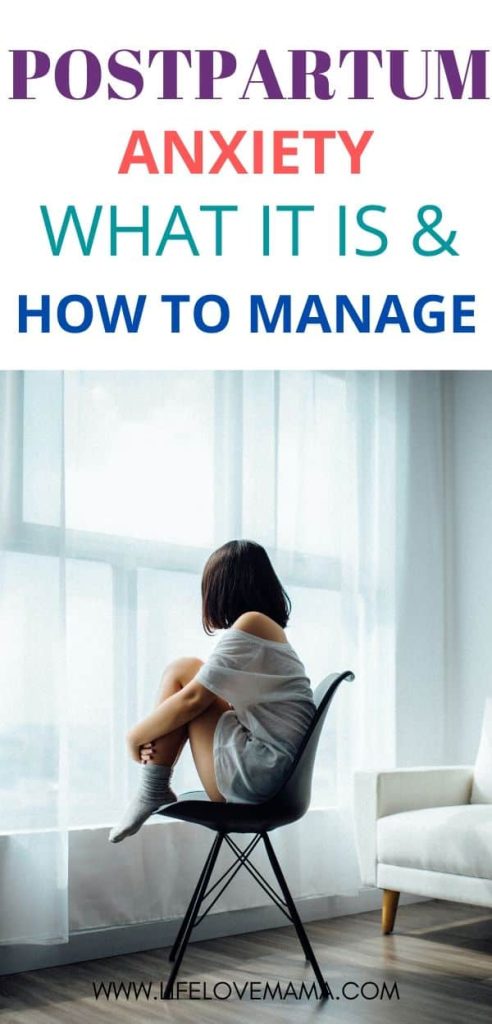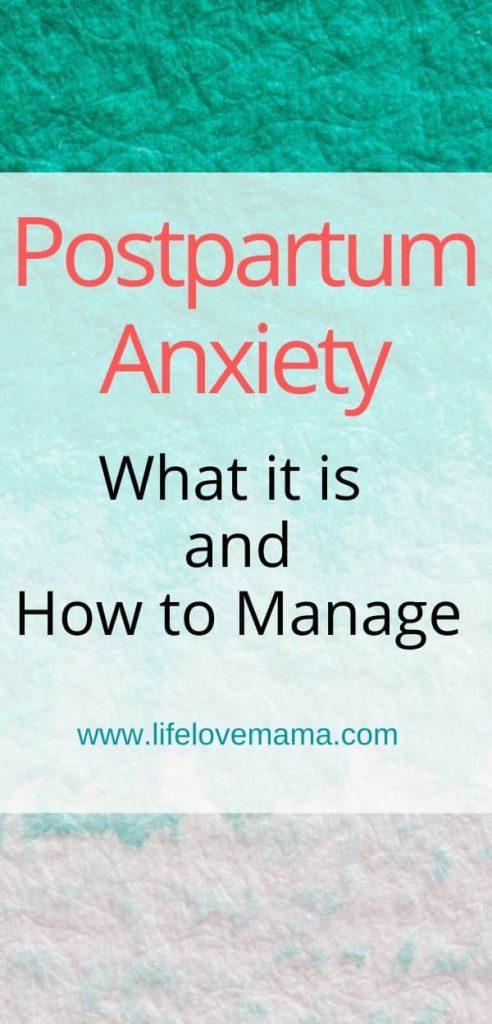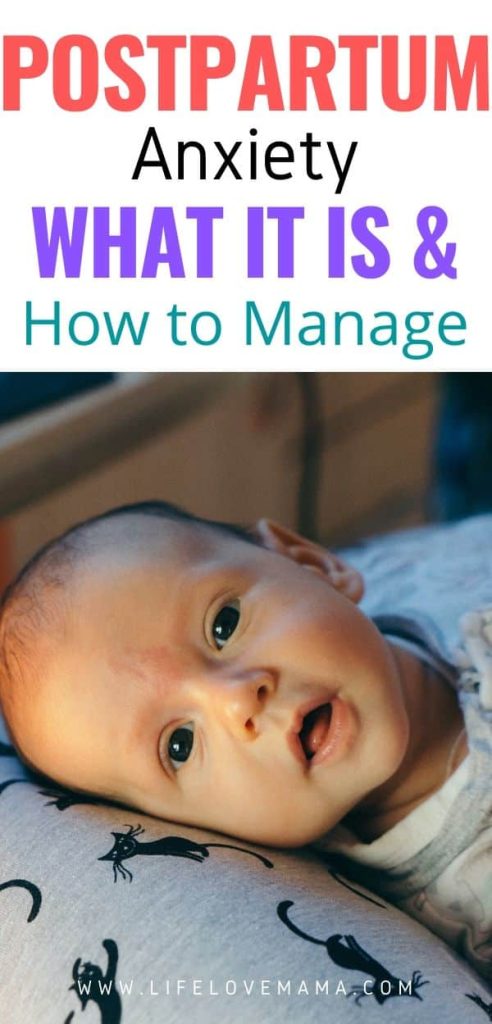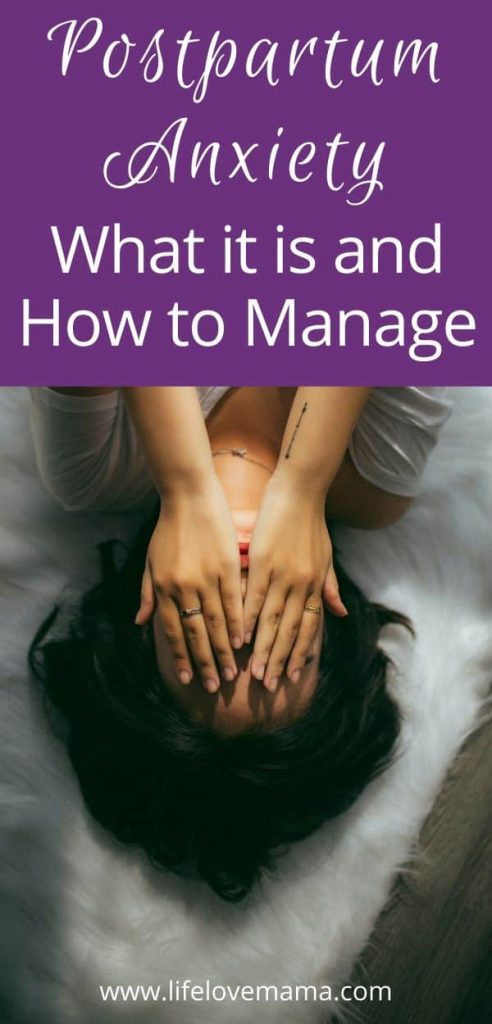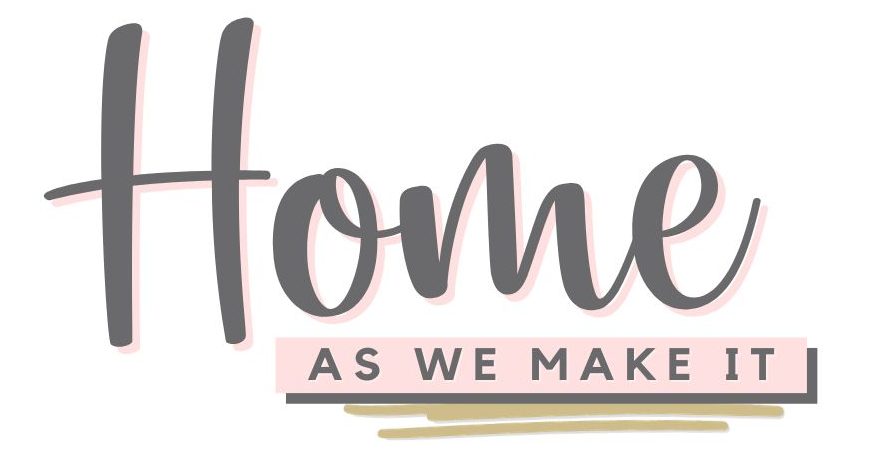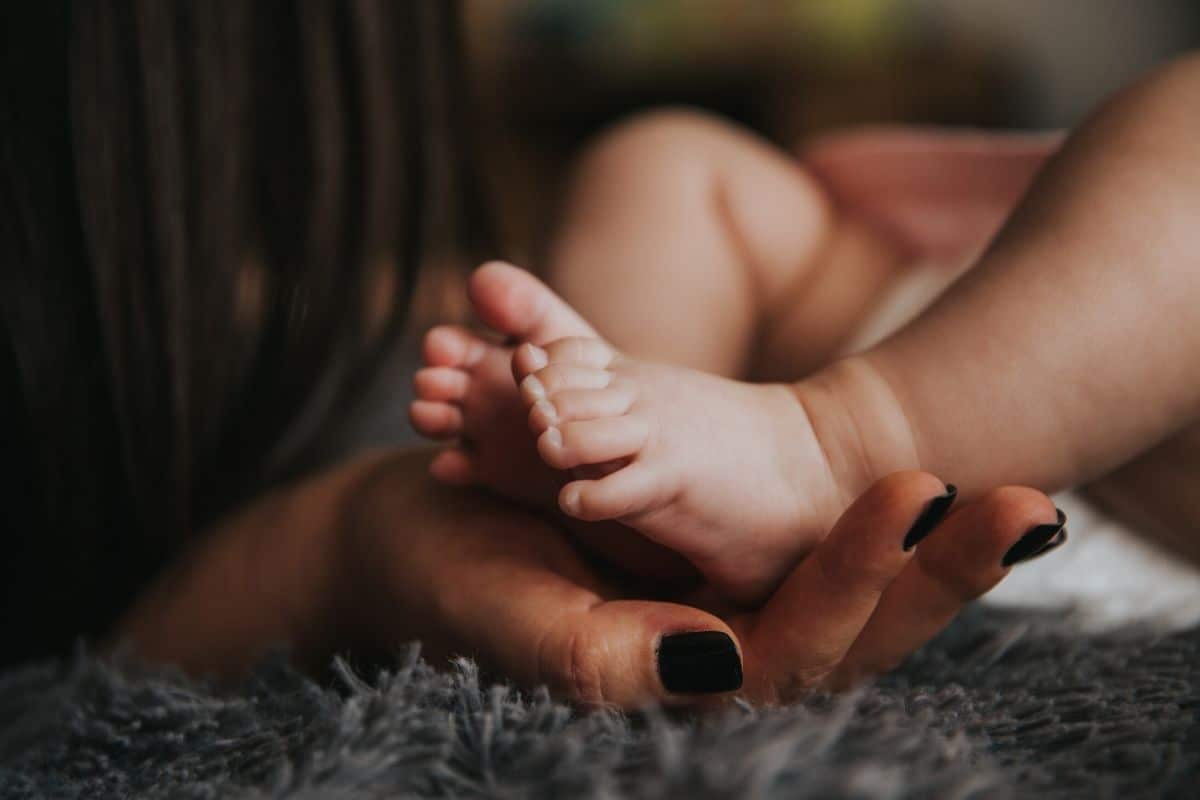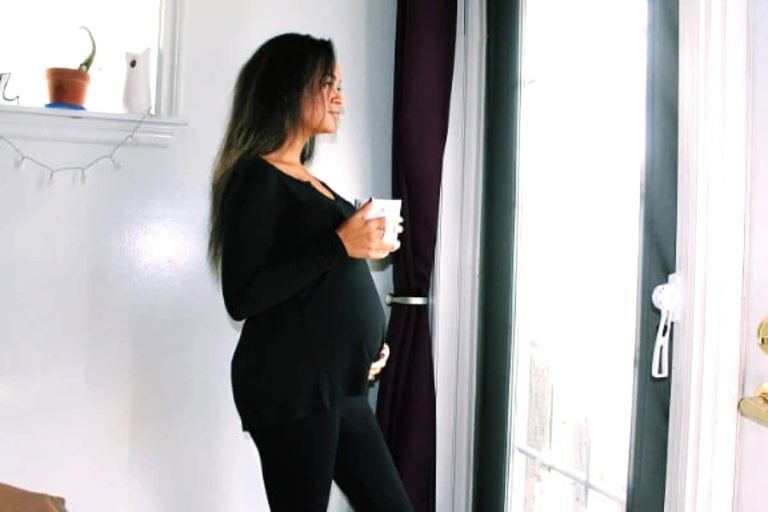Postpartum Anxiety: What it is and How to Manage
Anxiety is scary.
Most of us have dealt with some level of anxiousness or stress in our lives, whether that be because of school, work, or home life.
I remember experiencing quite a bit of anxiety in my teens and really not knowing how to manage it, or even what it was. I just remember feeling this constant heaviness in my chest, an underlying sadness, worry and exhaustion that rarely went away.
Note: This post may contain affiliate links, which means if you buy from my link I might make a small commission. This does not affect the price you pay. See the full affiliate disclosure here.
For me, becoming a mother brought on a whole new level of anxiety.
Disclaimer: I am not a doctor and if you think you have postpartum anxiety I strongly encourage you to see one. These are my own experiences and my own research on PPA.
(This post may contain affiliate links, meaning I make a small commission from any links you click and buy from. I only recommend products I love and appreciate your support! Find the full disclosure policy here.)
Most moms are warned that at the beginning of their postpartum journey they may feel off for a while due to the baby blues. When a human being leaves your body you can probably expect some sort of drastic shift in how you feel.
Your hormones are all over the place, you have a tiny baby to take care of, and somehow your body is supposed to recover from child birth through it all.
But you manage. You cry every ten minutes, worry whenever you’re not crying, and yet are somehow so happy to have this little being in your life.
A few months after my son was born I was feeling a bit better, but a few months after that I started feeling worse. I was crying, I was sad, I was worried. I was angry, irritable. I had horrible thoughts I didn’t want to have as a mom.
At the time I didn’t realize PPA could come up months later.
I started having panic attacks.
The world would spin, I froze in place, I could barely catch my breath, my mind started going crazy with a million horrible thoughts, I felt sick to my stomach.
I talked to my doctor and it was one of the best decisions I made for myself.
Postpartum anxiety isn’t talked about as much as postpartum depression is. Neither of them is talked about enough, but I didn’t even know postpartum anxiety could be a thing really. I figured all moms worry and feel bad for a while.
Maybe what I was feeling was normal. But it wasn’t.
My doctor referred me to the in-house counselor, and she has helped me over the past 6 months or so. I don’t go to her as often as I could, but she has helped me find some things that have worked for me to manage my anxiety struggles.
What is Postpartum Anxiety?
Postpartum anxiety can manifest in a few different ways, and sometimes it looks a lot like postpartum depression. Here are a few things to look out for:
- Constant racing thoughts
- Being unable to sleep due to those worrying thoughts
- Panic attacks
- Dizziness
- Nausea
- Inability to focus
- Irritability
- Feeling like a bad mother
These are just a few. Unlike PPD, women with PPA often don’t have trouble bonding with their babies, in fact they are often so bonded they’re constantly worried.
For the first year of my son’s life I don’t think I ever took my eyes off the baby monitor. I still have trouble with this, or with leaving the monitor for someone else to watch, even though he sleeps so well and my husband is perfectly capable of dealing with him if he wakes up.
I was also afraid to be left alone with the baby. My husband would leave for work and that’s when I would panic. A few times he had to come back. I’m fortunate that he was even able to.
You may also really struggle with leaving your baby with others. Leaving your baby can be hard for any mom, especially in those first few weeks and months, but later it can be a real problem when it’s causing you panic and you just can’t handle it.
Now that we’ve covered what it can look like for you, (and it can look different for everyone) here are some ways to manage.
Talk About It
Talk it out with your spouse, your friends, and seek help from a therapist if you feel the need. A therapist can help you with more in depth ways to cope specific to your situation.
Help your loved ones understand what’s going on with you. Tell them areas where they can help you and be open about your struggles.
It can be a little uncomfortable to say you’re struggling, and usually people don’t know what to say or do. That’s okay. They don’t have to do or say anything, just use them as a listening ear.
If there are ways they can help you, let them know! The people closest to you will want to help.
Ask for Help With Your Baby
Speaking of help, ask for a break!
Get your spouse to take over when you need them to. Ask a friend or family member to come over, and don’t be afraid to let them know when to leave too.
A few minutes to catch your breath, shower, even cook a meal without a baby attached at the hip can make a world of difference.
Or if you’d rather have someone come over and do some cooking and cleaning for you, that’s more than okay too!
Sleep
Oddly enough, not getting enough sleep is one of the biggest triggers for PPA, really any mental health issues. Yet, it’s one of the hardest ones to tackle because it’s often a result of PPA.
It’s hard to know in the early days whether you’re not sleeping because your baby is up every few hours anyway or because you’re anxious.
If you’re waking up in a sweat unable to get back to sleep with your mind swirling, or unable to fall asleep at all, those are some possible signs.
The biggest tip I can give here is to start a routine and stick to it.
Routine
Routine and sleep go hand in hand.
Start a night time and a morning routine at the same times every day. That may look like a relaxing bath, turning your phone off, a short yoga routine, reading a book with a cup of tea and going to bed by 9:30pm.
It may look like making an effort to wake up before your baby so you can shower, get dressed and enjoy a hot cup of coffee while you write your to do list for the day.
Whatever it ends up looking like to you, stick to it as much as possible. Give yourself some grace, especially at the beginning, but making a conscious effort to develop and stick to a routine can really help.
Exercise and Diet
People really underestimate the power of a few minutes of movement and a healthy diet.
I have had way too many days where I don’t bother eating or snack on junk because I don’t make the time and put other things on my to-do list first.
Now, I try to at the very least to walk daily with my son, and start the day with a nutritious breakfast.
Walking outdoors helps me clear my mind and keep my energy levels up.
It doesn’t have to be running or strength training, it can be a short walk daily or a quick yoga flow/stretching routine.
You don’t have to completely cut out all the sweets and carbs you love, but cutting down can really make a difference. You will feel healthier and happier, have more energy, and your body and mind will thank you.
Self-Care
It’s engraved into our minds to practice self-care as much as possible, but for some reason it’s so hard to do, particularly as a mom.
I find myself saying I don’t have the time, I could be doing something more productive, or I just feel all the mom guilt for taking a few minutes for myself.
Us mamas know in our heads that if we don’t fill our own self-care cup, we will have nothing to give to our children and families.
Still, we struggle in this area. Or at least, I do.
When my mental health started getting worse, it really opened my eyes to the fact that I wasn’t taking care of myself. I now make an effort to take some time for myself.
Sometimes that means working on something I love, like writing.
Sometimes it means taking a bath, having a glass of wine, reading a book or ignoring my to do list and going to bed early. That last one is particularly difficult.
I am a living testament to the fact that self-care really does help. I am so much more calm, less irritable, and able to care for my son better when I take care of me first.
Of course I still have my days, and none of these tips have to be the ‘be all and end all’ to all your mental health problems. However, being consistent and making an effort is a sure-fire way to improvement.
Remember mama, you’re not alone!
A staggering amount of women suffer from postpartum anxiety and/or depression, and it’s not talked about enough, so too often women suffer alone in silence.
But, you don’t have to. Speak out, get help, educate yourself and find what works for you!
